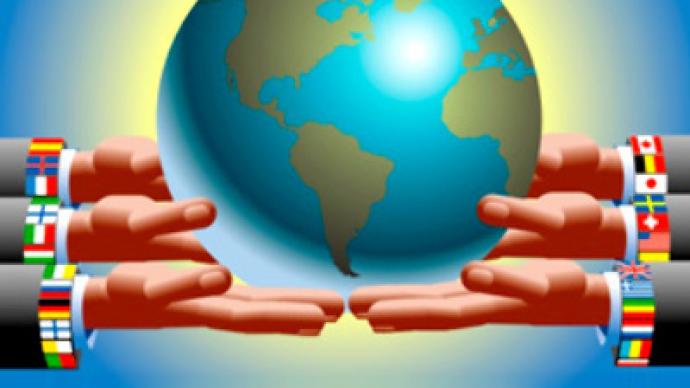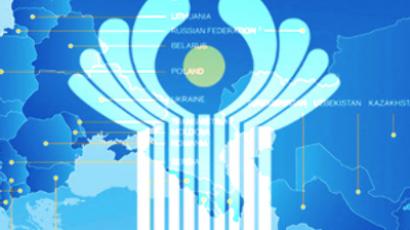Being a diplomat: what is it like?

On February 10, Russian diplomats celebrate their professional holiday. What is it to be a diplomat? And how has the profession changed since last century? RT tried to find out.
Diplomatic Worker’s Day was established by President Vladimir Putin’s decree in 2002. The date was chosen because the earliest mention of Russia’s first foreign affairs agency – known as Posolsky Prikaz – falls on February 10, 1549.
To talk about the nuances of the profession, RT spoke with Anatoly Adamishin, President of the Euro-Atlantic Association and former Ambassador to Italy and the UK, and Dr. Alexander Panov, Rector of the Diplomatic Academy and former Ambassador to South Korea, Japan and Norway.
RT: This holiday is relatively new in Russia. How important is it for diplomats and how do they celebrate it? Do you consider this day a holiday?
Anatoly Adamishin: First of all, it is certainly not a family holiday, even though I am not the only diplomat in my family. Secondly, this profession is not considered important in Russia…So this day is limited to ministerial events.
RT: Who is a modern diplomat? What qualities does one should possess to be able to cope with today’s challenges?
AA: I have been in diplomacy for forty years. Besides that, I read a course at university entitled “How to become a diplomat”… So, what I like about diplomacy and why I would recommend my friends or relatives to take up diplomacy (by the way, my grandson and granddaughter have followed in my footsteps) is because this profession allows a person to express oneself. It is very versatile. You have to know a lot and be able to do a lot at the same time.
Answering the question “Who is a diplomat?” some political analysts say: “A diplomat is a gentlemen who arrives in a foreign country to lie for the sake of his state”. I think this definition is completely wrong. If you ever lie deliberately, no one will trust you again. I can convince you that never in 40 years I have lied deliberately. Well, except for “white lies”, such as telling someone you cannot come to a meeting because of a headache. But I could never afford to say that something is “white” when I knew that in fact it was ‘black”.
At the same time, discretion is the better part of valor. So, I teach young diplomats the following rule: tell the truth and nothing but the truth…Though, not the whole truth.
There are three main tasks a diplomat has to deal with. Let’s take an ambassador – he should inform their government on what is happening in the country he works in, make suggestions on how to develop relations with that state and promote his own country, advocate the interests of his country and its citizens in the foreign state. His mission must be positive; he should always try to dampen the situation instead of escalating it.
Alexander Panov: Indeed, a diplomat of the 19th or 20th Century is completely different from the modern one. First of all, diplomacy has become a lot more diverse and dynamic. It requires a wider range of knowledge. While in the past being an expert in one or two main fields was enough, now a diplomat should be familiar with a huge spectrum of issues – such as climate change, disarmament, terrorism, drug trafficking. In addition to that, there is a whole bunch of problems in bilateral relations – including details and nuances – which should also be understood.
Of course, a modern diplomat has to possess all the qualities of a classic representative of this profession. That is communicability, analytical skills, patriotism – when you defend the interests of your state.
RT: American President Theodore Roosevelt once said, “Speak softly and carry a big stick; you will go far”. Can this principle be applied to foreign policy today?
AA: I totally agree with that statement….You know it is not customary to quote Lenin now, but I once came across a quotation saying that “95 per cent of a situation is defined by balance of power, and only 5 per cent by diplomats’ and politicians’ skills”. So I remember people asking me what the point of working for that 5 per cent is. And I used to tell them that the 5 per cent should be performed extremely well.
RT: The last 20 years have brought significant changes to Russia and its citizens. But how has a diplomat’s job changed compared to that in the Soviet Union?
AA: From my personal experience, it was really easy during Perestroika. I used to be ambassador to Italy then. That was the time when we were in the spotlight because of all the changes that were taking place in the Soviet Union, when democracy started developing. That was the best period. Before Perestroika our ambassadors did not really enjoy confidence. In fact, diplomacy did not exist then.
Undoubtedly, Russian ambassadors have many difficulties now. The first reason behind that is that Russia no longer has the authority it used to have in the world. Today, with democracy being more limited compared to the past, we have less trust from others and it is more difficult t work with us. There is no fear and no respect.
AP: During the nineties it was the most difficult period when Russian new foreign policy was formed and quite serious mistakes were made then. Because of romanticism by foreign affairs authorities who were inspired by a new era of democracy in Russia, it was taken for granted that [after the collapse of the USSR] the newborn state, Russia, would be respected by everyone and invited everywhere.
My mission then was quite complicated, since as deputy foreign minister from 1994 I dealt with the Asia-Pacific direction. When I started that job, I found out that quite a few mistakes had been made. The new leadership believed that only relations with the US and the West were to be worked on. As a result, relations with Asia not only did not improve then, but even got worse in some cases. That can be said about India, which felt really offended at that time because of a lack of attention from Russia. The same thing happened with former socialist states – Vietnam, Laos, Mongolia – and Japan. A similar situation was happening around Russian relations with international organizations. It really took an effort to make Russia accepted into such bodies as ASEAN and others.
Now, Russia’s position in the region is quite favorable.
AA: What makes today’s life of a diplomat more complicated is that the manner of diplomacy and timing have changed. There was a case in the 19th Century when a president of the US called a secretary of state and told him that the American ambassador to France had not sent a single dispatch in a year. He said that if no dispatches would follow next year, measures must be taken. So see how relaxed it used to be? Now we have the Internet, immediate connections between heads of state. Everything has become so much faster. So diplomats have to be ready to give a response immediately when something happens.
Diplomats must be ready to take responsibility and not to apply to Moscow for instructions whenever something happens. Or the other way round. When before reporting to Moscow a diplomat makes enquiries about what Moscow would actually like to hear. So, a diplomat must first of all be a personality.
AP: Now we have to deal with former Soviet republics and that is a new and large direction of work which is currently being developed by the country’s Foreign Ministry. Specialists qualified for that job (and we didn’t use to give education exactly in that field) are of great demand.
Also, diplomacy has become a dangerous profession since people have to work in so-called “hot spots” where the political situation is complicated or even a civil war is under way. One would need courage and selflessness to keep working there. In addition, living conditions in such places are often far from the comfort of developed countries. This is really an interesting profession which requires serious preparation.
RT: How has the profession of being a diplomat influenced your life? Are you only a diplomat at work or at home as well?
AA: I hope my profession has made me a well-educated and polite person. Mainly, I had to deal with Western Europe and the US, where you cannot work without preparation. But my relatives say sometimes I am too straightforward to be a diplomat. Same as my colleagues told me during diplomatic dinners: “Anatoly, it is not good to eat so fast”. They could not understand that I was raised in a camp for children after WW2, where eating slowly meant you would stay hungry since others would take your food. So, life influences a diplomat a lot more than one can influence life.
RT: If you had to convince somebody close to you to become a diplomat, what argument would you use for that?
AA: I would say the simplest thing: it is interesting to be a diplomat.













